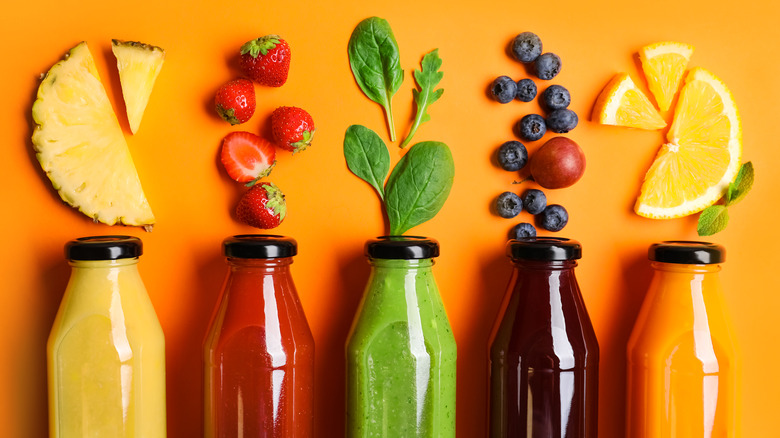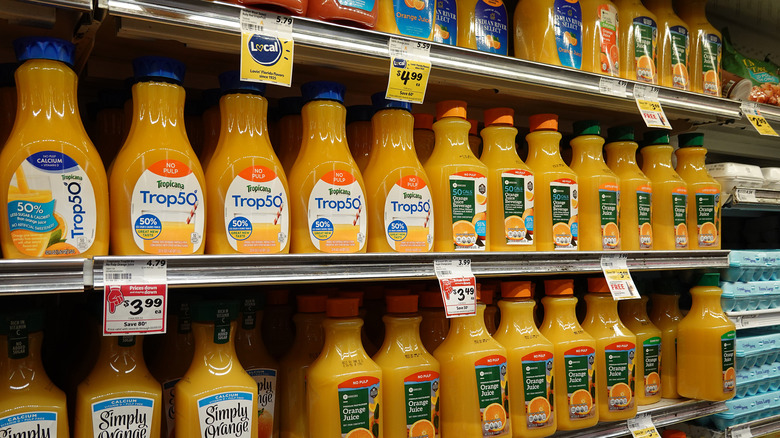How To Tell If Your Fruit Juice Is Lying To You
Food labels often lie. This shouldn't come as a surprise; after all, the companies who make these products are trying to sell them to you. These companies aren't breaking the law either. The FDA regulates some words and phrases used to market food and beverage items, but not very many of them. The practice of misleading labeling is particularly notable in the case of fruit juices. As nutritionist Robin Miller trenchantly noted in Mashed, both Ocean Spray and Tropicana have marketed so-called 100% fruit juices made with additional ingredients that show that's clearly not the case.
So how can you tell what labeling information is accurate on fruit juices and what isn't? Unfortunately, it's hard to be precise with nutritional data, as the FDA allows for a rather wide margin of error — these numbers on the label can be off by as much as 20%. It is possible, however, to uncover the truth behind those misleading marketing slogans frequently emblazoned on the front of fruit juice bottles.
What's really in your fruit juice
According to Consumer Reports, if a bottle isn't listed as 100% fruit juice, it suggests that artificial sweeteners, colors, or other unwanted ingredients have probably been added. Look for the phrase "with added ingredients," then double-check the ingredients list to find out what's included.
To complicate things further, the legal standard for using the phrase "100% fruit juice" is quite loose because while they may not contain other additives, they could be water and fruit concentrate. While perusing the ingredients list, pay careful attention to the order in which the ingredients are listed; the weight determines the order of the ingredients, so if water comes first, that's a sure sign that the juice was made from concentrate. This matters because juices made from concentrate typically have lower levels of vitamins and minerals, per Livestrong. Look for "not from concentrate" or "freshly squeezed" labels for juice that was not dehydrated and re-introduced to water before bottling.
One should take also "reduced sugar" claims on fruit juice labels with the proverbial grain of salt. Although this means the fruit juice has significantly less sugar (minimum 25%), some fruit juice manufacturers will add more sugar substitutes to maintain its typical sweetness. Sugar levels, by the way, always bear monitoring on all fruit drinks since this class of drinks sometimes rivals sodas in terms of sugar content.
Static Media owns and operates Tasting Table and Mashed.

